The current food system is broken. Despite a food surplus and increasing yields, 4.7 million people go hungry in the UK. It doesn’t have to be this way. We can create a more equitable, sustainable system where the UK has food sovereignty and is not reliant on cheap imports.
Food poverty in the UK is growing, with levels among the worst in Europe and disproportionately impacting children 1https://www.parliament.uk/business/committees/committees-a-z/commons-select/environmental-audit-committee/inquiries/parliament-2017/sustainable-development-goals-follow-up-17-19/. This is especially shocking given that we already grow enough food to feed the entire world, however we lose a large percentage of calories by feeding soy, vegetables and grains to animals destined to end up on our plates 2https://www.researchgate.net/publication/241746569_We_Already_Grow_Enough_Food_for_10_Billion_People_and_Still_Can’t_End_Hunger/citation/download – http://www.globalagriculture.org/report-topics/meat-and-animal-feed.html.
Here in the UK, we are far from safe when it comes to food security. The food shortages we have seen during the Coronavirus pandemic and due to Brexit give us an insight into what we can expect with the climate and ecological crisis. An overreliance on imported products will have a major impact on the UK’s food system and the ability to provide nutritious food was the conclusion of a government Select Committee in 2019 3http://www.globalagriculture.org/report-topics/meat-and-animal-feed.html. As the Vegan Society’s Grow Green report puts it ‘the UK is still in the irrational situation where, as a nation, it exports nearly everything that it produces and imports almost everything it needs’ 4https://www.vegansociety.com/sites/default/files/Grow%20Green%20Report%20201512a%20web.pdf. UK farming provides less than 50% of the food eaten here 5https://www.gov.uk/government/publications/food-statistics-pocketbook-2017/food-statistics-in-your-pocket-2017-global-and-uk-supply and in 2010, the British livestock industry needed an area the size of Yorkshire to produce the soy used in animal feed 6https://www.wwf.org.uk/sites/default/files/2017-11/WWF_AppetiteForDestruction_Full_Report_Web_0.pdf.
However, the overconsumption of meat and dairy in not just a problem for the UK. Global supply chains and international trade in animal feed causes the Global South to be dependent on world market prices. Globally, more than a third of all cereals and half of all oil crops are used for animal feed 7Food and Agriculture Organization of the United Nations (FAO) Tackling climate change through livestock – A global assessment of emissions and mitigation opportunities. Rome, Italy: FAO; 2013. and this puts an incredible strain on other countries which provide an overwhelming 60% of land for European demand of agricultural and forestry products 86 Lugschitz, B., Bruckner, M. et al. Europe’s global land demand. A study on the actual land embodied in European imports and exports of agricultural and forestry products. Vienna: Sustainable Europe Research Institute; 2011. and provide the resources needed to support animal agriculture in the UK. None of this is either just or sustainable and threatens global food security.
A food system fit for purpose delivers on ‘wellbeing, social justice and environmental stewardship’ according to the New Economic Foundation 9https://neweconomics.org/2014/12/urgent-recall, and our system fails at all three. It doesn’t have to be this way. Land used to grow animal feed and suitable land under pasture should be repurposed for crops for human consumption only. Additionally, national self-sufficiency would result in a CO2 reduction of 3,236 million tonnes or 9 years of current UK emissions 10Harwatt, H. and Hayek, M. 2019. Eating away at climate change with negative emissions: Repurposing UK agricultural land to meet climate goals. pg 1 Boston: Harvard Law School https://animal.law.harvard.edu/wp-content/uploads/Eating-Away-at-Climate-Change-with-Negative-Emissions%E2%80%93%E2%80%93Harwatt-Hayek.pdf. We have a chance to reduce poverty and hunger globally as well as at home. We can also meet our climate targets, provide fair incomes and provide a connection between food producers and the consumers. Stronger farmer-food user links are also vital to re-establish local food supply chains and give value to the work our farmers do.
All of this can be achieved under a plant-based, vegan food system.
